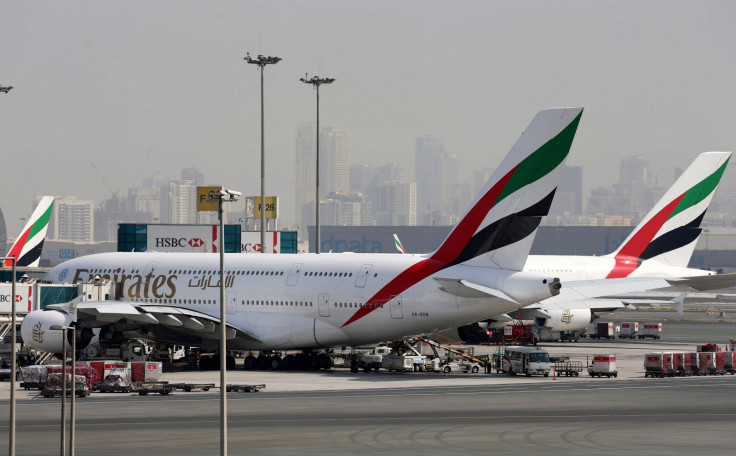Emirates blames terrorism, US travel ban and low oil prices as profit plunge 82%
Gulf carrier records first decline in profits in five years as load factor weakens.

Emirates blamed persistently low oil prices and terrorist attacks for a slump in annual profit, which marked the first decline in five years.
In the 12 months to 31 March, the Dubai-based carrier recorded an 82% year-on-year slump in full-year profits to Dh1.3bn (£263m, $340m), while net income tumbled 70% to Dh2.5bn.
The figures marked the first time the world's biggest long-haul airline reported a drop in profit since 2012, although it also meant Emirates has now turned a profit for 29 consecutive years. However, Emirates described the latest financial year as one of its "most challenging years to date".
Group chairman Sheikh Ahmed bin Saeed Al Maktoum said: "We expect the year ahead to remain challenging with hyper-competition squeezing airline yields, and volatility in many markets impacting travel flows and demand."
Revenue was largely stable at Dh85.1bn, despite what the airline described as "the relentless rise of the US dollar" which had a negative impact of Dh2.1bn in some of Emirates' main markets. Fair adjustments due to a highly competitive environment also weighed on revenue, the carrier said on Thursday (11 May).
Along with the stronger dollar, low oil prices have dealt a major blow to Emirates and other Gulf-based airlines. While European and US airlines are generally boosted by lower crude prices, Emirates and its Middle Eastern peers see that as a disadvantage, as it reduces demand for premium travel in the region.
Emirates reported an 8% year-on-year increase in passenger numbers to a record 56.1 million, but the load factor – a crucial gauge in the airline industry, as it measures the number of seats filled on each plane – declined from 76.5% to 75.1%.
The carrier blamed "lingering economic uncertainty and strong competition in many markets" as the reason for the drop. Like most airlines, Emirates has also suffered from the impact of terrorist attacks in France, Turkey and North Africa, which have dampened demand, particularly in terms of European tourists flying to Asia.
The tighter security measures, imposed by US President Donald Trump's administration, have also had a financial impact on the airline industry.
Dubai International Airport, the third busiest airport in the world by passenger traffic, is one of the main transit points for passengers travelling to the US from the Middle East. Demand, however, has declined sharply after Trump controversially decided to temporarily halt entry to the US for citizens of Iran, Libya, Somalia, Sudan, Syria and Yemen.
Furthermore, Dubai was among the 10 cities in Muslim-majority countries to be hit by a ban on laptops and electronic devices in cabin bags on flights to the US.
Last month, Emirates said the measures have led to a drop in occupancy on planes that are normally 80% full and unveiled plans to reduce the number of flights to the US.
From May, flights to the US from the Emirates' hub in Dubai will decline from 126 to 101, with daily services to Orlando and Fort Lauderdale scaled down to five a week, while flights to Boston, Los Angeles and Seattle will operate once rather than twice a day.
However, the carrier added Yangon in Burma and Hanoi in Vietnam to its list of destinations and took delivery of 19 Airbus A380 double-deckers and 16 Boeing 777s.
© Copyright IBTimes 2025. All rights reserved.






















